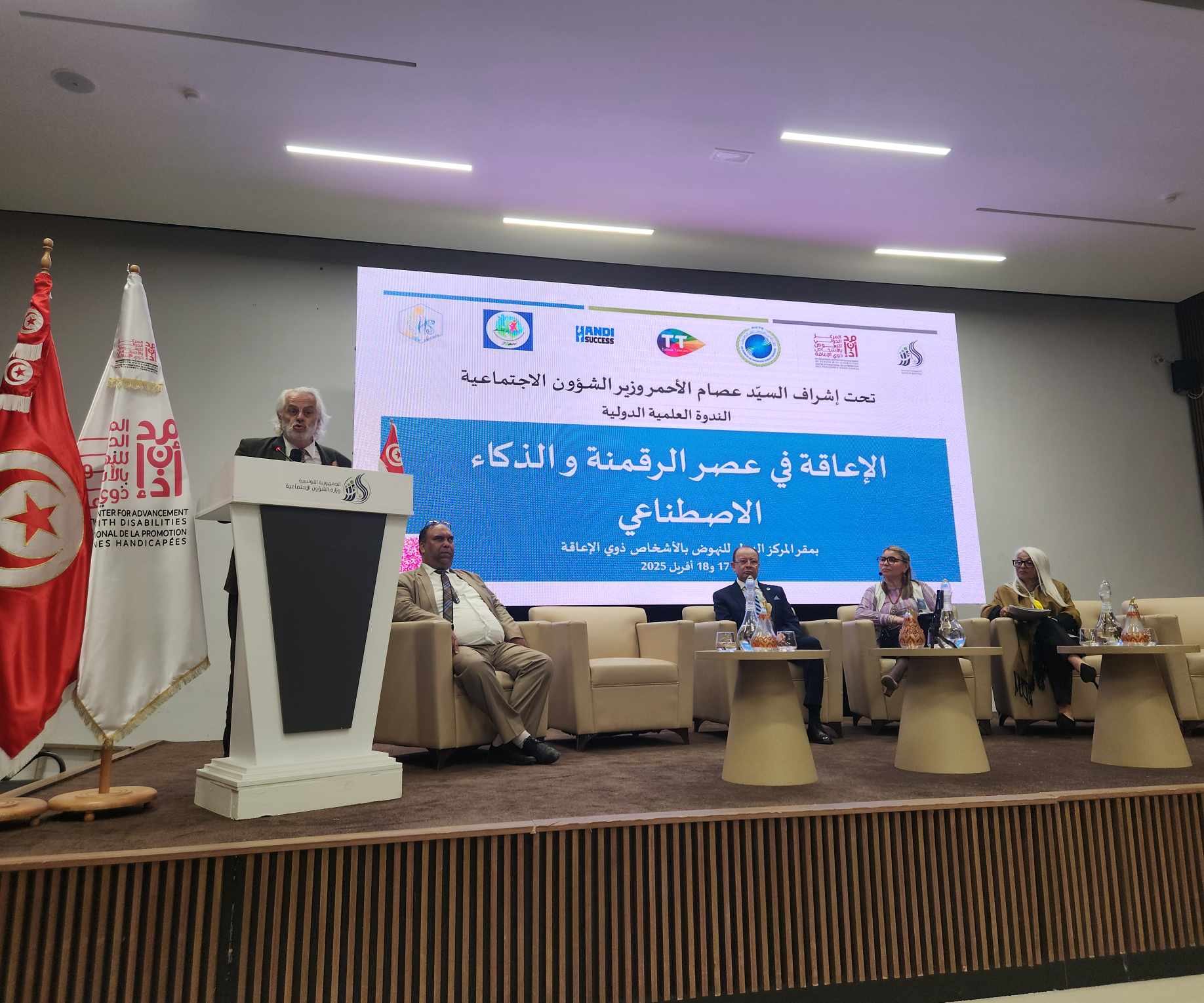
The Arab ICT Organization (AICTO), and the International Centre for Promotion of Disabled in Tunisia, organized in cooperation with the International Association “La Pause”, and the “HandiStea” Association, the International Conference on “Disability in the Digital Age and the Age of Artificial Intelligence”, held on 17–18 April 2025 in Tunis, Republic of Tunisia.
The conference was held under the auspices of HE. Minister of Social Affairs of the Republic of Tunisia, and witnessed the active participation of over 150 attendees, including:
- The Director of Communication at the UNESCO Office in Tunis;
- The Director General of the Information Center at the Ministry of Health;
- Several regional directors of social affairs from the second administrative region;
- The Coordinator of Spanish Cooperation in Tunisia;
- The Head of the National Office of the Tunisian Association for the Aid of the Deaf;
- As well as researchers and students from the University of Sfax, the University of Carthage, the Virtual University of Tunis, and the ISESCO.
In his opening remarks, H.E. Eng. Mohamed Ben Amor, Director General of AICTO, reaffirmed AICTO’s steadfast commitment to advancing digital inclusion for persons with disabilities. He emphasized that true digital transformation can only be achieved when it is fair, inclusive, and accessible to all, without exception.
His Excellency highlighted that while the digital revolution and advances in artificial intelligence offer promising opportunities to empower persons with disabilities, they also require the development of inclusive policies and the adoption of a participatory vision to prevent the emergence of new forms of digital exclusion. He also underlined AICTO’s efforts in supporting Arab countries in crafting technological policies and standards that consider national specificities and ensure equal digital access for all.
Concluding his address, H.E. Eng. Mohamed Ben Amor described the conference as a vital platform for dialogue, experience-sharing, and innovative partnership-building, contributing to the empowerment, autonomy, and dignity of persons with disabilities. He called for leveraging technology as a bridge to inclusion and a pathway to achieving digital justice.
The first day of the symposium featured three hybrid scientific sessions (in-person and online), focusing on:
- Inclusive public policies,
- Ethical challenges related to artificial intelligence,
- The role of AI and digitization in the education, rehabilitation, and therapeutic support of persons with disabilities.
In parallel, the conference hosted an exhibition of innovative startups specializing in AI and digital solutions designed to serve persons with disabilities. Participating entities included: Alamni, AMALXR, Cure Bionics, Delta, SD Academy, Thanna Téléassistance, HawKar, IA2, Remotion, as well as the Higher Institute of Medical Technologies of Tunis, the Higher Institute of Applied Sciences and Technology of Mateur, and the SETIT Research Laboratory of Sfax.

